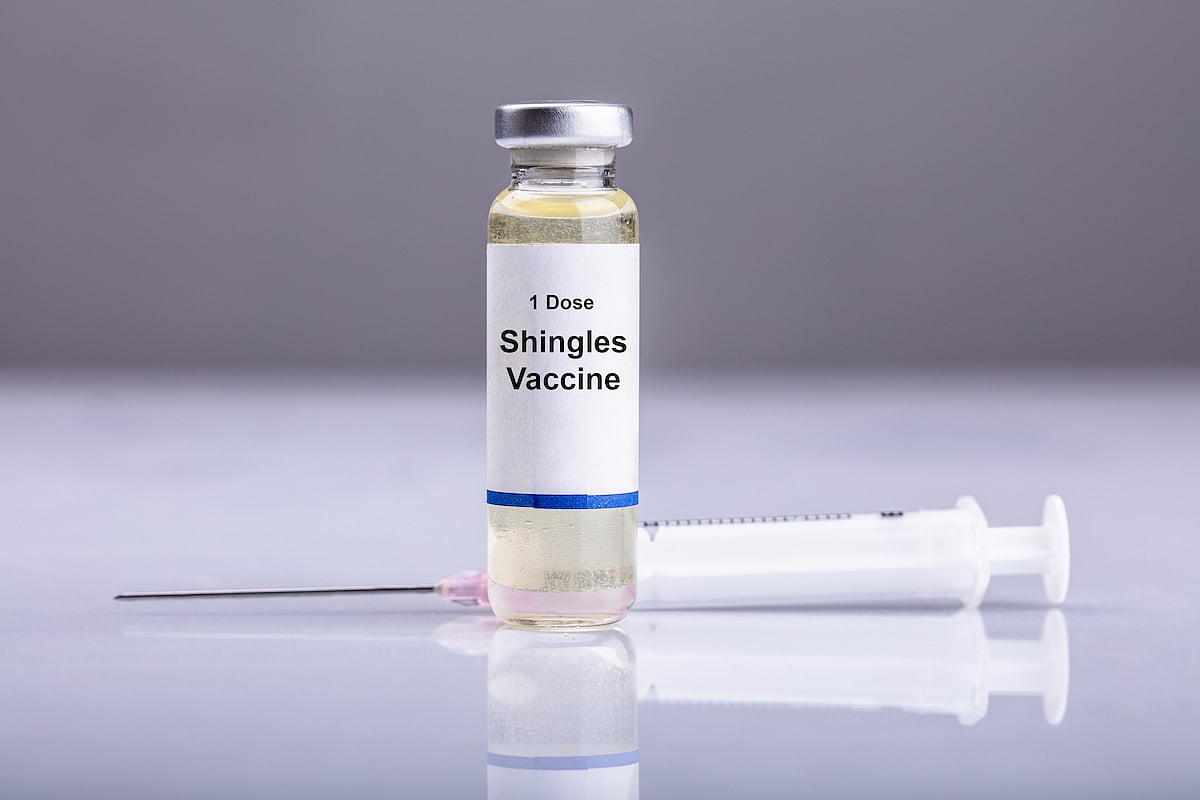Get Healthy!

- Ernie Mundell
- Posted July 26, 2024
Shingles Vaccine Could Lower Dementia Risk
Older people who avail themselves of the newest shingles vaccine could reap a hidden benefit: A significant drop in their odds of developing dementia.
One expert applauded the new findings.
"Dementia isn’t an inevitable part of aging; it’s caused by diseases like Alzheimer’s," said Dr. Sheona Scales, director of research at Alzheimer’s Research UK. "Finding new ways to reduce people’s risk of developing these diseases is vital. This research, carried out in a large group of people, suggests that people given the Shingrix shingles vaccine might have a reduced risk of dementia."
Overall, the six-year study found that people who got so-called newer "recombinant" shingles vaccines, such as Shingrix, spent 17% more time living free of any diagnosis of dementia, compared to folks who had gotten the older "live" form of the vaccine, Zostavax.
"It isn’t clear how the vaccine might be reducing risk, nor whether the vaccine causes a reduction in dementia risk directly, or whether there’s another factor at play," said Scales, who wasn't involved in the research. "So, it will be critical to study this apparent effect further."
The findings were published July 25 in the journal Nature Medicine.
“A link between infection with the herpes zoster virus [which causes chickenpox and shingles] and the onset of dementia has been suspected for some time," noted Andrew Doig, professor of biochemistry at the University of Manchester in England who wasn't involved in the research
He pointed out that, in the era when live vaccines such as Zostavax were used against shingles, "there was already some evidence that the old live vaccine was able to reduce the risk of Alzheimer’s disease."
But by 2017, health care providers started switching from using live vaccines to newer recombinant shots such as Shingrix.
In the United States, the U.S. Centers for Disease Control and Prevention now recommends that everyone age 50 or older get Shingrix "to prevent shingles and the complications from the disease."
In the new study, British researchers led by Maxime Taquet of the University of Oxford tracked U.S. data on almost 208,000 people who got their first dose of a vaccine against shingles between 2014 and 2020.
Over that period of time, about half got the older live Zostavax vaccine, while the other half went on to receive the newer recombinant Shingrix shot.
Six years after vaccination, folks who received the Shingrix vaccine had "17% more time lived diagnosis-free, which translates into 164 additional days lived without a diagnosis of dementia in those subsequently affected," according to a Nature news release.
The benefit was somewhat more pronounced (by about 9%) in women compared to men, the research also showed.
The effect also seemed specific to the shingles vaccine, since two other vaccines often given to older people, the flu shot and the Tdap (tetanus, diphtheria and pertussis) vaccine, didn't show this protective neurological benefit.
So, could the herpes zoster virus that causes shingle also be a cause of dementia?
According to Doig, "any such link is not simple." That's because "most people who are infected by the virus never get Alzheimer’s disease, and some who get the new recombinant vaccine get Alzheimer’s disease, regardless," he explained.
"A vaccine is therefore unlikely to ever totally prevent Alzheimer’s disease. Many other factors affect the likelihood of getting dementia, such as genetics, cardiovascular problems and head injuries," he added.
"Nevertheless, tackling the herpes zoster virus does look to be a promising strategy towards defeating this horrible and costly disease, and one that should be vigorously pursued," Doig said.
More information
The Mayo Clinic has details on the shingles vaccine.
SOURCES: Nature Medicine, news release, July 25, 2024; UK Science Media Centre, expert comments, July 25, 2024







